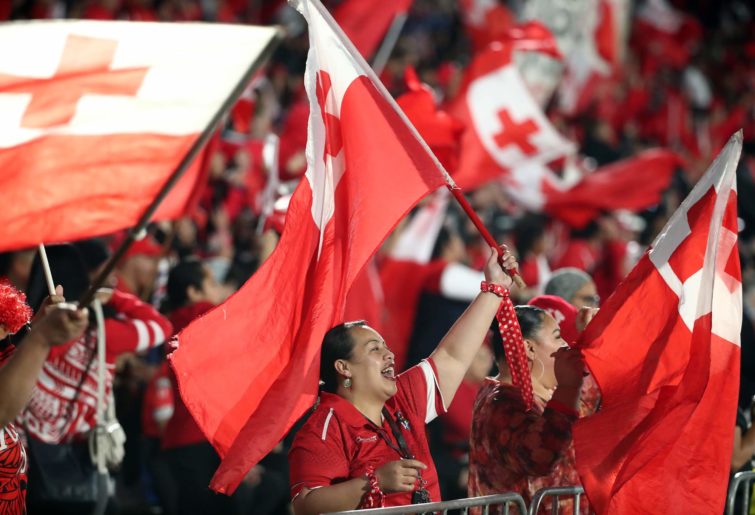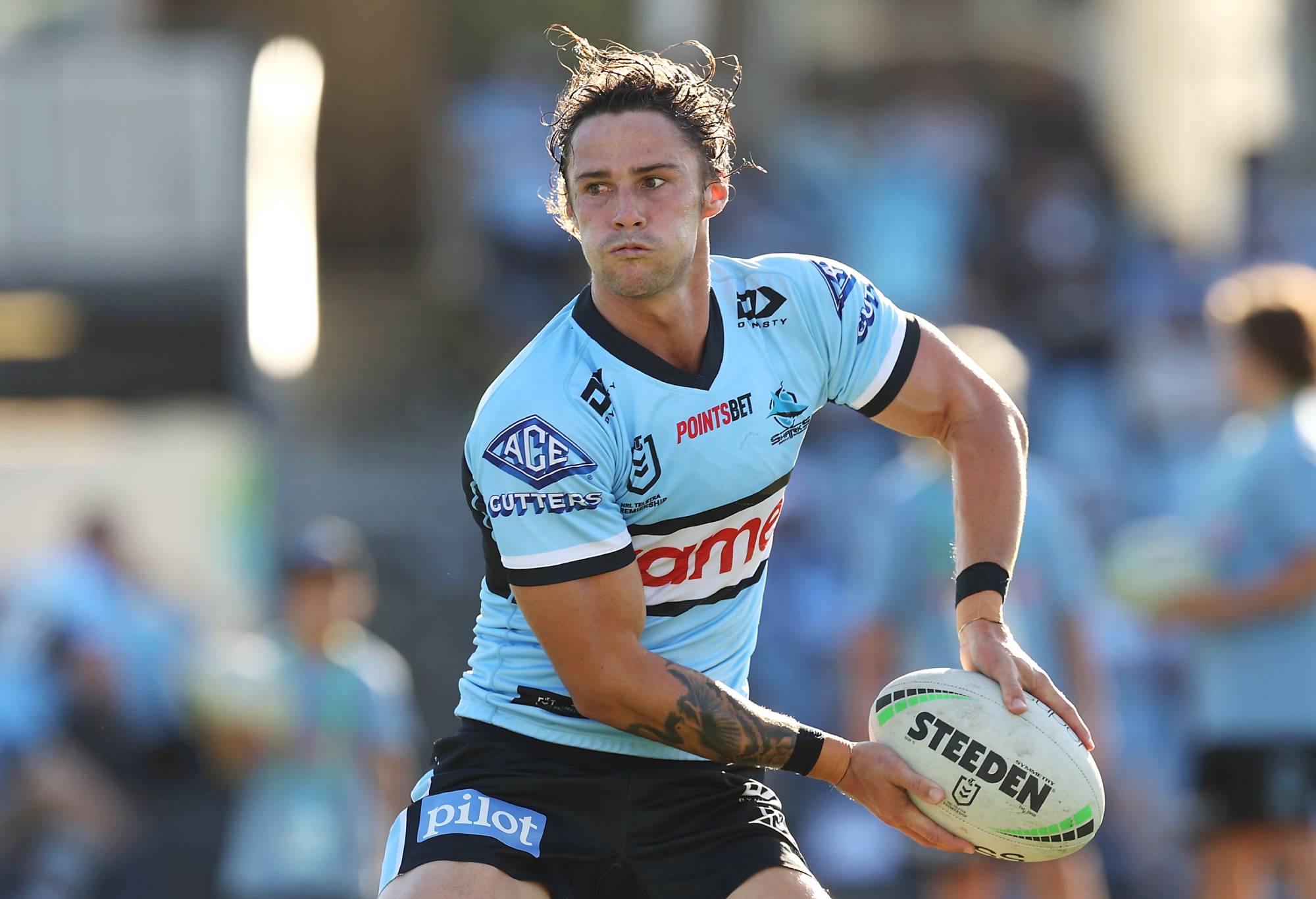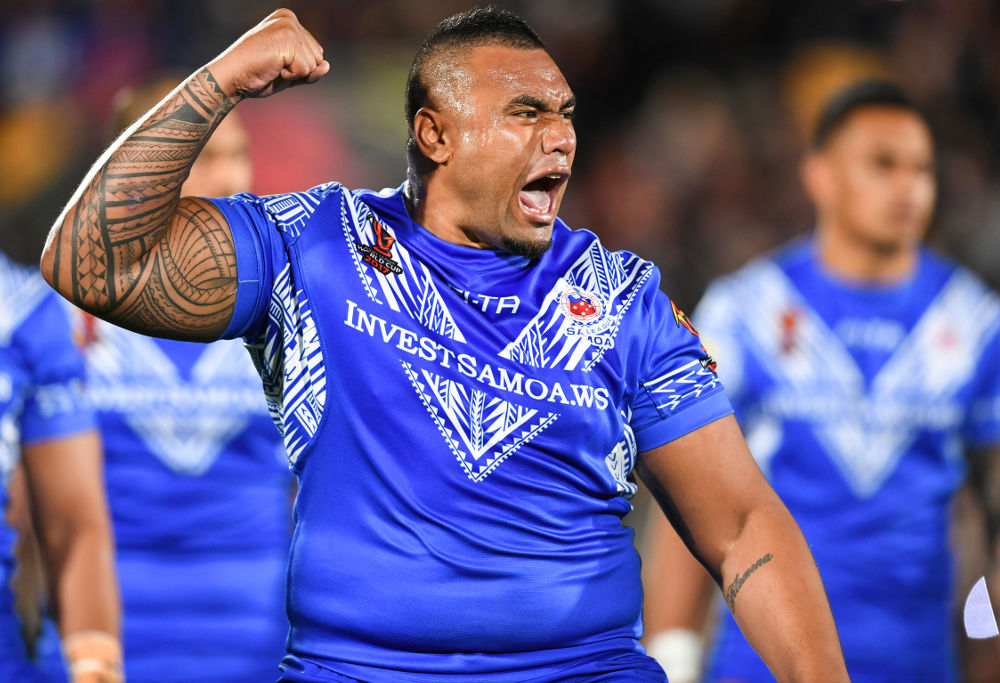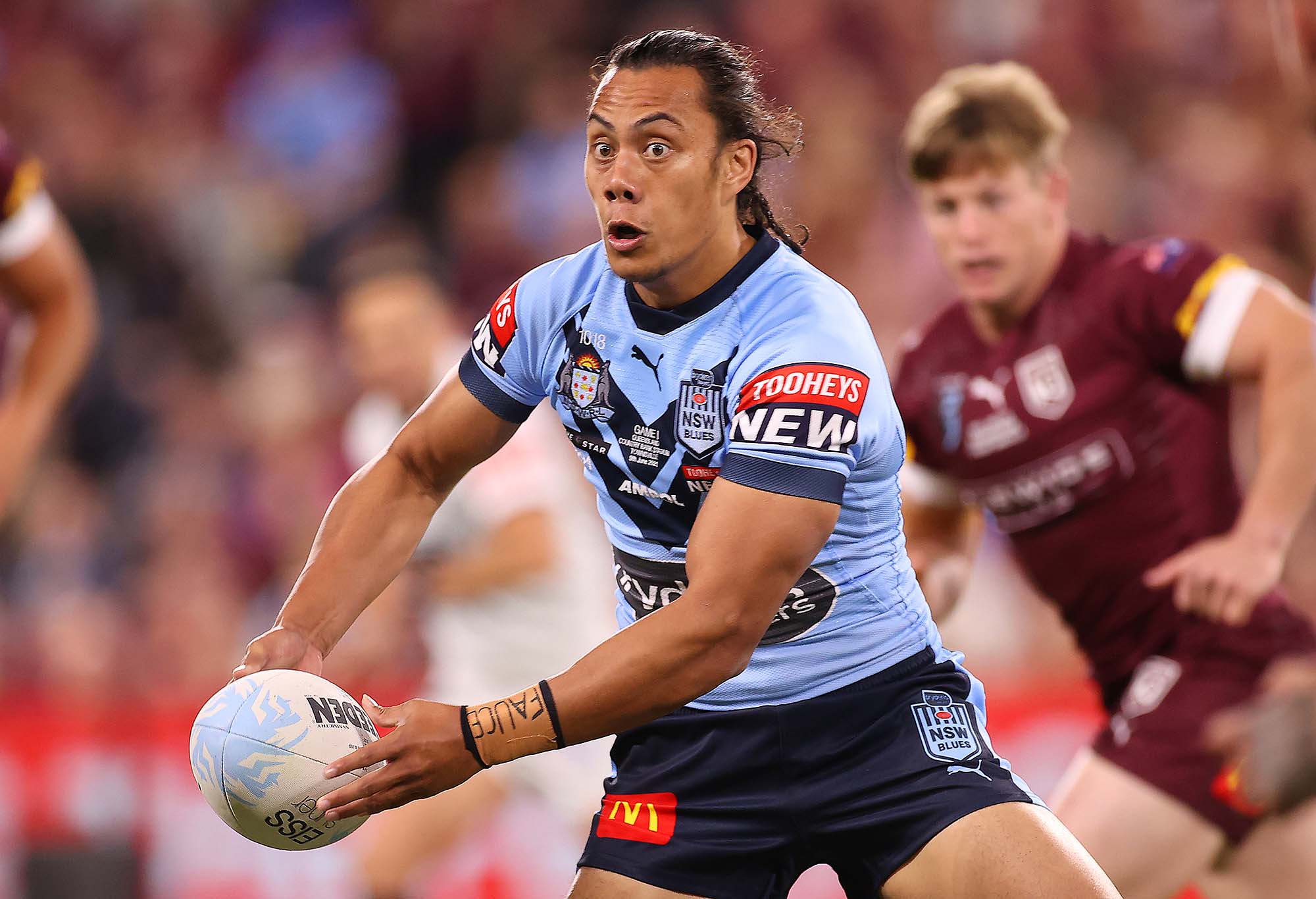It used to be that State of Origin was an international trial. Get the boys together, play the best against the best and then pick a Kangaroos team.
If you look at the greatest Kangaroos teams, from 1982’s Invincibles and 1986’s Unbeatables through to 1994, perhaps the last true touring party, they coincided with the birth of Origin through to the golden age of the early 90s. It was the ultimate finishing school.
Now, however, that aspect has fallen away. The continued failings of Great Britain might be part of that – and please be gentle to your humble Pommy journo in the comments section – but the major issue, to my mind, is that Origin no longer really looks like it did in 1994, and indeed, neither does international footy.
If you want to know the difference, our much-talked-about 2022 State of Origin wingers would be a good place to start.
In the blue corner you get Daniel Tupou, who played for Tonga at the 2017 World Cup, and Brian To’o, who might yet turn out for Samoa later in the year.
In the maroon corner you have Xavier Coates, born in PNG and all but nailed on to play for the Kumuls in October, and Selwyn Cobbo, a proud Indigenous man who has already featured in the All Star game.
For reference, the wingers in Game 1 of 1994 were Rod Wishart, Graham Mackay, Michael Hancock and Wille Carne. All great players of course, and all played for Australia.
Tupou has already spoken of his conversations with Brad Fittler about Origin eligibility and the upcoming World Cup. Indeed that dilemma might come up as soon as Game 2, with Tonga slated to face New Zealand in Auckland the day before Origin in Perth.
“Freddy and I have spoken about it and I definitely want to play for Tonga at the end of the year,” he said. “I’ll see how things go for the [midyear] Test.
“I wanted to know if I could still play [for Tonga] at the World Cup and I can. Freddy knows how important it is for me to represent Tonga and my culture is pretty serious to me. He understood that and respected that.”

(Photo by Fiona Goodall/Getty Images)
Good news, then, for Josh Addo-Carr. On the other wing, To’o is yet to confirm his team for the World Cup, but last year he expressed a preference for Samoa.
“I had a good talk with my family about it, especially my brother and my dad,” he said. “They’re backing me whatever I decide. Pretty sure my goal would be Samoa so, we will see how it goes.”
The wingers aren’t the only ones. The Australian trial features almost half of all participants eligible, and indeed likely, to play elsewhere. Of New South Wales, only six of the squad are Australia-only players.
Where 36 Origin players might have once whittled down to 24 in a squad for the World Cup, now that is far more complicated.
You can immediately take away Tupou and Kotoni Staggs, who have most recently played for Tonga, plus Junior Paulo, Jarome Luai and Tino Fa’asuamaleaui, who have already repped Samoa, and Api Korosau and Jacob Saifiti, who will surely turn out for Fiji.
Jeremiah Nanai, Stephen Crichton, Joseph Suaalii, Murray Taulagi and Payne Haas are also eligible for Samoa but unconfirmed.
Felise Kaufusi and Josh Papalii more recently played for Australia but have represented Tonga and Samoa respectively in the past, as have Reagan Campbell-Gillard and Tariq Sims with Fiji.

(Photo by Mark Kolbe/Getty Images)
On the other side of the world, nobody is expecting James Tedesco to turn down the Kangaroos for Italy – whom he last represented in 2017 – but should Nicho Hynes and Pat Carrigan not be selected for Australia, Scotland and Ireland would certainly come calling, as would Wales (or Tonga) for Tyson Frizell.
The list of names and nations is a little bewildering, but hard as it is to remember after two years without international footy, it represents a sea change both in playing talent and for rugby league in general.
Prior to 2017, eligibility rules meant that Australia – and the money and recognition that came with it – ruled the roost, while everyone else had to wait.
Now eligibility rules for the international game treat State of Origin like what it is, an internal Australian competition akin to City-Country or junior reps.
Australia, which has shown little to no interest in the international game for years and has largely treated other nations, especially those in the Pacific, as chumps, now will see as many as half of its prime selection trial turn out for someone else.

(NRLPhotos / Nathan Hopkins)
On the other hand, the real winners are the players: they get to have their cake and eat it. They can play Origin, then not have to play for Australia.
It’s undeniable that Origin is the highest example of rugby league, featuring the most good players on the field at the same time, and they can play in that while also having the chance to represent something that matters to them on a personal and family level.
Perhaps it is me, not being from these parts, but it seems like the only rivalry between New South Wales and Queensland is based on the fact that they play each other at sports.
The Australia that organised State of Origin was primarily by and for Anglo-Celtic Australians who enjoyed their intramural sports day followed by bashing up on the Poms afterwards.
In a lot of ways it’s a vestigial organ of those times – that’s why we love the old footage, including the punch-ups, that form a guilty pleasure of a bygone age. It reminds us of who we were and the heritage of the game.
That’s not a criticism, by the way; that’s what Origin was for and largely reflected Australia and Australian rugby league in 1982. It means an awful lot if you’re Rod Wishart from Gerringong or Michael Hancock from Stanthorpe. Heritage, in a sport like rugby league, is vital.
However, if you’re a dual-culture kid from Mount Druitt or Logan City, that heritage might not always feel like it’s yours. It might be some of it, but the international game might be the other part.
I’m pretty sure the Indigenous and Maori players feel the same way about the All Stars fixtures at the start of the season. Origin scratches one itch, but that week scratches another.
Origin is a showpiece for our game at the highest level that everyone can wallow in, retro punch-ups and all. But it shouldn’t be the pinnacle anymore.
The FIFA World Cup isn’t the pinnacle of football and the T20 World Cup isn’t the pinnacle of cricket; the Champions’ League and IPL have taken over. But nobody looks at the international tournaments and complains that the standard isn’t as high.
I think of it as Origin providing recognition from your peers, proof that you’ve made it at the highest level, but international footy providing the highest level of recognition from your community.

(Photo by Mark Kolbe/Getty Images)
I’m yet to meet a Pasifika player who wasn’t excited about turning out of their nation at the World Cup, and the most common thing they talk about isn’t the footy, it’s the culture.
It’s their mums and dads, giving back, the struggles they went through to give them the chance they are now taking.
It’s good that rugby league has this major event that everyone looks up to but also now has something else that offers the modern multicultural NRL and displays that at the highest level.
Australian rugby league needs to recognise that too and back its players in. Last year’s actions that saw the World Cup cancelled at the whims of the NRL clubs were circling the wagons around 1982’s mentality.
If this year’s Origin – now a World Cup trial for other nations – is anything to go by, they need to do it now or have the choice taken out of their hands.
































































































